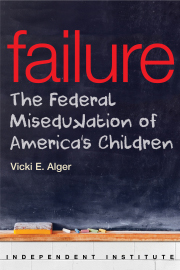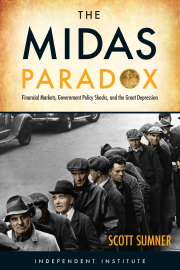If you are in a crowded airplane, flying in coach, is it okay to lean your seat back? If you’re in the middle seat, should you just assume you get at least one armrest as your very own? And which one? Both? What if the schlub beside you won’t give up the space?
We are halfway through the U.S. government’s 2023 fiscal year. The U.S. Treasury Department’s Monthly Treasury Statement documenting the federal government’s tax collections and spending has both good and bad news about the federal government’s fiscal situation.
The outlook for Social Security worsened over the past year. According to the program’s trustees’ 2023 report, the main culprit for that change is the high inflation of the last two years. They expect that inflation will increase the cost of benefits and sap future economic growth.
The expression “artificial intelligence” seems fitting for any entity that does not take responsibility for its words. ChatGPT and the like remind us that machines are not human beings and human beings are not machines. Machines do not approve and disapprove as human beings do. Machines do not have sentiments. They do not have a conscience. They do not have moral responsibility.
Maricopa County Superior Court Judge Scott Blaney issued a powerful ruling recently when he found that the City of Phoenix, Arizona, had created, or contributed to, deplorable health and public safety conditions in a section of downtown Phoenix that has come to be known as “The Zone,” a sprawling homeless encampment that has rapidly grown to more than 1,000 people living on the streets. The judge agreed with the plaintiffs, who live and work in the area, that the city is responsible for abating the public nuisances that have resulted from the encampments and ordered it to “maintain its public property in the Zone in a condition free of (a) tents and other makeshift structures in the public rights of way; (b) biohazardous materials including human feces and urine, drug paraphernalia, and other trash; and (c) individuals committing offenses against the public order.”
The sudden collapse of Silicon Valley Bank and the response of regulators have reignited debates about federal deposit insurance and its dangers. First, some background information. On Friday, March 10, 2023, Silicon Valley Bank was shut down, and the Federal Deposit Insurance Corporation (FDIC) was appointed receiver. On the following Monday, the FDIC said in a press release that “today [the FDIC] transferred all deposits—both insured and uninsured—and substantially all assets of the former Silicon Valley Bank of Santa Clara, California, to a newly created, full-service FDIC-operated ‘bridge bank’ in an action designed to protect all depositors of Silicon Valley Bank. . . . All depositors of the institution will be made whole.”
Former President Donald Trump was just indicted on 34 counts in Manhattan. The charges are brought by DA Alvin Bragg, who has ties to George Soros. The charges allege falsification of business records with the intent to conceal another crime. The concealment of another crime (the aspect of the charge making it a felony) relates to federal campaign finance laws and the “hush money” payment to Stormy Daniels. The Federal Election Commission (FEC) looked into the payments to Daniels, but voted 4-1 to close the investigation because they could not prove that Trump “knowingly and willfully” violated the law. Similarly, the Southern District of New York’s federal prosecutors declined prosecution of the alleged campaign finance violations. Thus, to convict Trump on the state records violation charges, state prosecutors must also prove the federal case that the FEC and SDNY declined to pursue.
Two large regional banks failed within a period of only two days, Silicon Valley Bank (SVB) on March 10, and Signature Bank on March 12. Both banks had a combined aggregate asset size of $319 billion as of Dec. 31, 2022, with SVB and Signature ranked as the 16th- and 29th-largest banks in the United States, respectively, based on total assets of $209 billion for SVB and $110 billion for Signature.
Do you know where to find the world’s best investment managers? If you ask most people that question, they’ll guess places like Wall Street in New York. Or London. Or any of the world’s great financial centers. But the real answer is Washington, D.C., where you will find the greatest concentration of the world’s best investment managers working inside the halls of the Capitol building. The most well-known among them are elected members of the House of Representatives and the Senate.
The Food and Drug Administration is often said to save patients’ lives by only allowing safe and effective products into the US healthcare system. Numerous research articles written over dozens of years strongly indicate it doesn’t—quite the opposite.




























